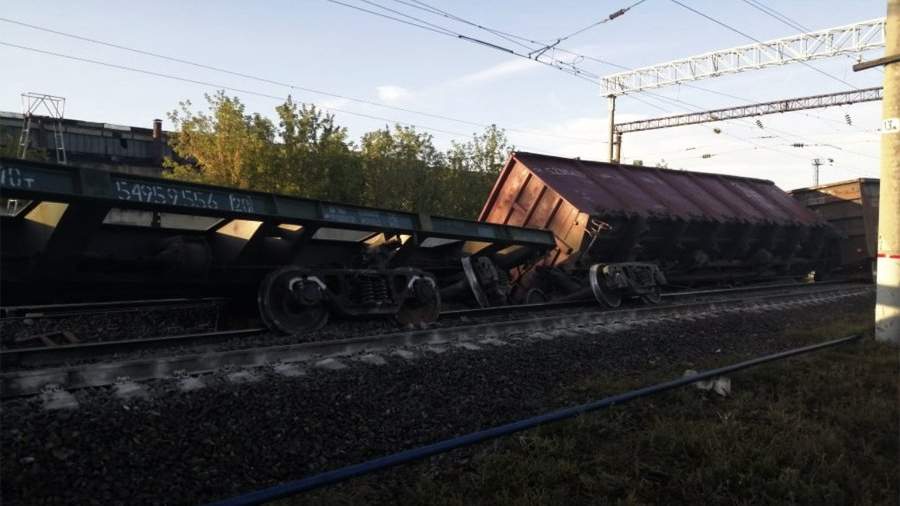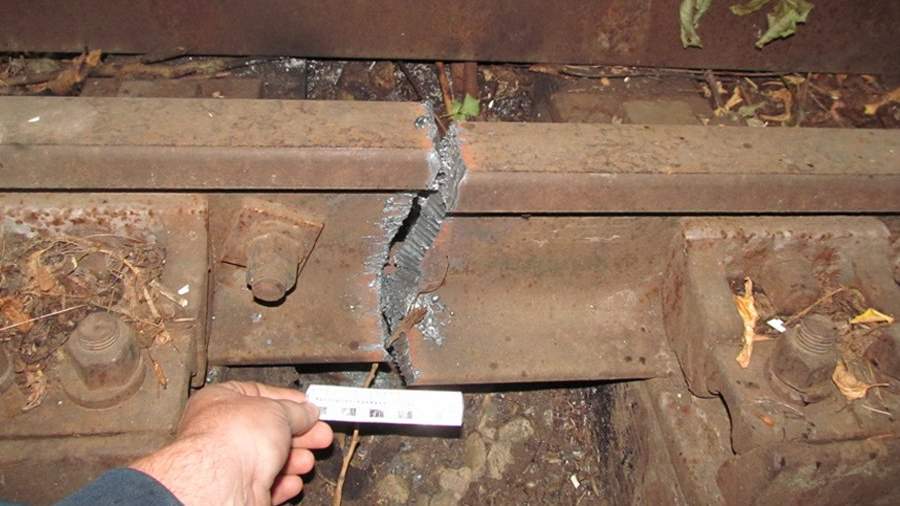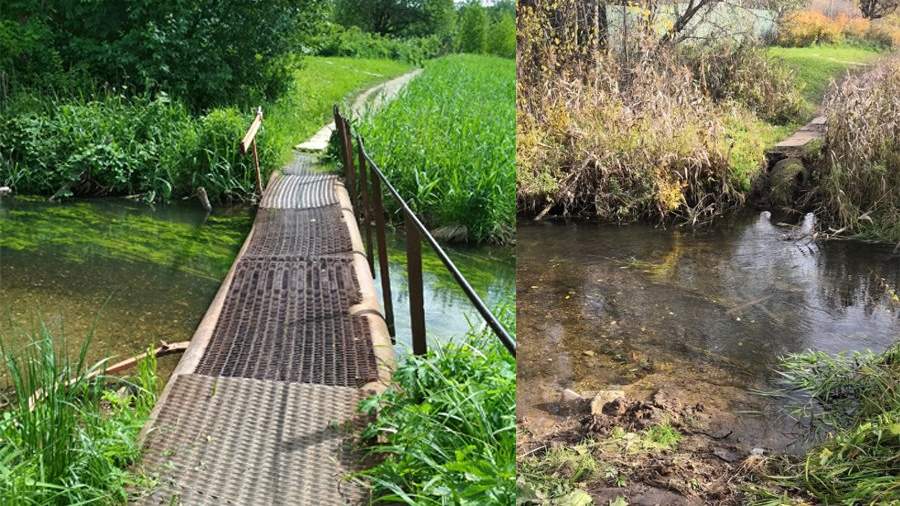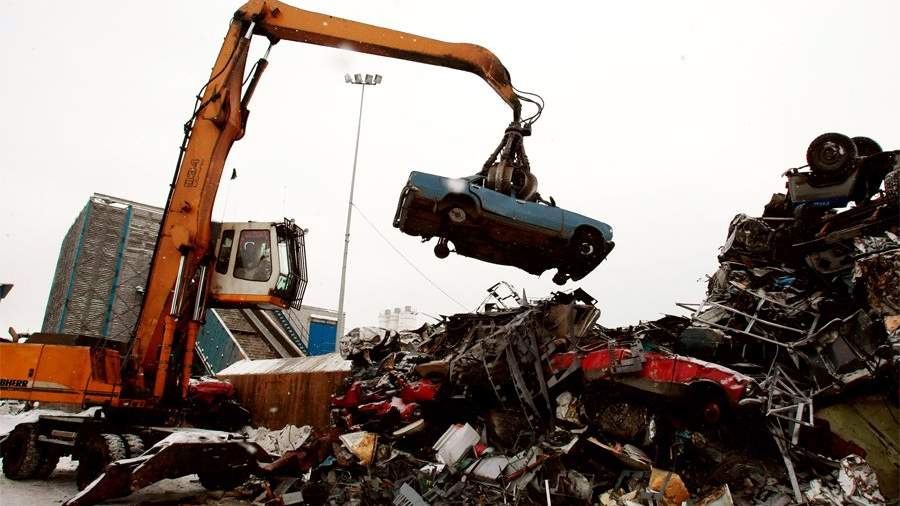A resident of the Krasnoyarsk Territory stole no less than 15 tons of rails and handed them over to a scrap collection point… And an unemployed, previously convicted resident of Solnechnogorsk stole, but still did not have time to hand over the garage of a resident of Khimki to a scrap metal collection point. In St. Petersburg, meanwhile, six months later, the police detained a KamAZ hijacker – a man stole a truck from an unguarded parking lot and handed it over for scrap. About what threatens those wishing to hand over for scrap everything that is bad, how to restrain illegal collectors and put things in order in the industry – in the material of Izvestia.
Table Of Contents
Fence, rails, “shoes”
In the Kansk district of the Krasnoyarsk Territory, a 36-year-old local resident was detained in hot pursuit: a man, for a minute, on his own dismantled more than 200 m of railway rails with turnouts on an unused track and sawed them apart…
“The stolen goods were transported to the scrap metal collection point on specially hired equipment, – the press service of the Ministry of Internal Affairs for transport in the Siberian Federal District. – For 15 tons of metal, the attacker received about 150 thousand rubles, which he hoped to spend on his needs“.
But the amount of damage turned out to be many times more – almost a million… A criminal case was initiated under the article “Theft”. AND in the Lipetsk region are investigating the reasons for the derailment of eight cars of a freight train. There were no casualties, no damage was done to the environment either, but due to the emergency, several passenger trains arrived three to four hours late. It is noteworthy that the freight train was carrying scrap metal, and, as reported in the Moscow Interregional Investigation Department for Transport of the TFR, the preliminary cause of the accident was the theft of scrap metal.
“The reason for the descent of the cars was the unlawful actions of an unidentified person who committed theft of ferrous metal scrap transported by a freight train by dropping it onto a railway embankment“, – noted in the department.
The chronicles of the theft of scrap can, it seems, continue indefinitely. They steal wires and power transmission towers (for example, in the KChR Rosseti North Caucasus lost almost 8 thousand meters of aluminum wire), cast-iron fences from graves. In Orsk, a 12-year-old schoolboy wanted to make money on vacation and grabbed brake shoes from the railway… Everyone got it: the child’s mother was brought to administrative responsibility for improper performance of parental duties, a submission was sent to the railway enterprise – they look poorly at the property.
In Kazan, meanwhile, thieves stole a section of the fence. Throughout the past year, residents have been complaining about both the appearance and the installation of fences where necessary and not necessary, so it is not surprising that in social networks, scrap metal hunters were jokingly called “city orderlies”.
By the way, last year there was a tendency – whole bridges disappeared… In the spring, not far from Kirovsk, local residents noticed that the long-unused railway bridge across the Umba River had disappeared – it was quietly sawed and taken away in an unknown direction. In the fall, residents of the village of Dedenevo in the Moscow region lost their pedestrian bridge.
In general, people, fortunately, did not die for such metal, but they seem to be ready for a lot for the sake of scrap metal.
From administrative to criminal
As noted by lawyers, most often such violations are qualified as theft. Depending on the value of the stolen there may be administrative liability for petty theft under Art. 7.27 of the Code of Administrative Offenses of the Russian Federation (damage in an amount not exceeding 2500 rubles) or already criminal under Art. 158 of the Criminal Code…
“Besides, under Art. 267 of the Criminal Code of the Russian Federation, a citizen may face liability for destruction, damage or otherwise rendering a vehicle, means of communication, signaling or communication equipment, or other transport equipment unusable, if these acts entailed, by negligence, the infliction of grievous harm to human health or causing major damage (worth more than 1 million rubles)– Pavel Kokorev, a leading lawyer of the European Legal Service, says to Izvestia. In this case, the offender is threatened with a fine from 100 thousand to 300 thousand rubles or in the amount of the wage or other income of the convicted person for a period of one to two years, and may be assigned to forced labor for up to four years or imprisoned for the same term.
If, as a result of a violation through negligence, a person died, then the perpetrator faces up to eight years, and for the death of two or more persons, you can get up to 10 years in prison.…
By law at the scrap metal collection point an individual must demand an identity document and a power of attorney from the owner of the scrap (if it is another person)… An act is drawn up for each batch of scrap. Upon surrender of non-ferrous metal, you will also be asked to write a statement: indicate your full name, passport data, what kind of metal and where is the good, the basis for the emergence of ownership and the signature under all this honest recognition… It is clear that at an illegal point all of the above does not work.
“Since the activity on handling ferrous and non-ferrous metals is licensed, then for violation of licensing requirements (in particular, the acceptance of scrap metal without drawing up an act, without identifying the supplier), the metal receiver may be subject to liability under Part 4 of Art. 14.1 of the Administrative Code of the Russian Federation in the form of a fine for individual entrepreneurs in the amount of 4 thousand rubles to 8 thousand rubles or administrative suspension of activities for up to 90 days, – the lawyer notes. – For officials – from 5 thousand to 10 thousand rubles; for legal entities – from 100 thousand to 200 thousand rubles or administrative suspension of activities for up to 90 days. “
Director of the charitable institution “Law and Order”, lieutenant colonel of the reserve of the Ministry of Internal Affairs of Russia Oleg Ivannikov believes that it is necessary to introduce serious personal liability not only for those who donate the scrap obtained by criminal means, but also those who receive it.
“Directors of firms that provide both transportation and reception should also be subject to personal criminal liability., – says the expert in an interview with Izvestia. – Now the legislation does not keep pace with the new challenges that exist in society. I am sure that the State Duma will have such a bill that will equate the reception of ferrous and non-ferrous scrap with precious metals “…
Oleg Ivannikov notes that the damage inflicted by scrap collectors by stealing cables, manholes, fences is measured in millions, “therefore, it is necessary to introduce collective responsibility for the entire chain of reception and processing of this scrap“.
The list was rejected, non-cash is awaiting
In November last year, the Ivanovo Regional Duma introduced a bill to the State Duma that would gave the regions the right to determine the list of products made of non-ferrous and ferrous metals that ordinary citizens can hand over. The authors of the bill noted: according to the current laws, individuals can donate scrap in accordance with the list established by the regions, but the regions themselves are not separately endowed with such a right. Wherein lists introduced for the reception of non-ferrous metal…
The initiators of the bill clarified that “free sources of scrap and waste of ferrous metals (landfills, wastelands) have dried up, citizens are stealing scrap and waste of ferrous metals from the owners,” summer residents are suffering. The list would make it possible to settle legal relations in the field of scrap and waste of ferrous metals and clarify what can be handed over and what not.
The law did not reach the first reading – the Ministry of Economy and the Ministry of Industry and Trade opposed the list of ferrous scrap. As the departments argued, “the introduction of restrictions on collection will lead to a reduction in electrometallurgical production and metallurgical production in general, and will also negatively affect the development of scrap collection organizations“. Deputy Minister of Industry and Trade Viktor Evtukhov also noted that lists of non-ferrous scrap that are approved by regional authorities do not have uniformity…
“This leads to the fact that scrap and waste of non-ferrous metals are brought for delivery to the constituent entities of the Russian Federation, in which the widest list operates,” Viktor Evtukhov said in an interview.
However, they will try to restore order in the industry. So, since 2018, work is underway on amendments to the federal law “On production and consumption waste”. It is on the limitation of cash payments when accepting scrap and waste of non-ferrous or ferrous metals from individuals. According to the bill, it will be possible to get up to 10 thousand rubles at a time, and no more than 50 thousand rubles a month.
“It can be assumed that the bill will fight against illegal change points, but first of all it is aimed at combating the shadow circulation of funds. Because the volume of scrap metal in the country, according to various estimates, is in the billions (up to a trillion). Almost half of them, unfortunately, go to the so-called cash platforms, when they simply cash out funds. “– says in an interview with Izvestia one of the authors of the bill, a member of the State Duma Committee on Security and Anti-Corruption Andrei Lugovoi.
As for the fight against illegal items, the deputy recalls that today, in order to open a scrap metal collection point, two licenses are needed. One license (federal) is for working with hazardous waste, and another license is issued by the entity. According to Andrey Lugovoi, there is no need to issue a second license.
“Unfortunately, each subject has its own rules for issuing such a license: they are easy to get around, they are corrupt and not so effective. We believe that the industry itself will be able to fight illegal sites. She herself will be interested in this, and then it will be easier for law enforcement agencies, among other things, to identify illegal sites“.
Stop list and other measures
As noted in the Association of Scrap Collectors NSRO “Ruslom.com”, the work of illegal players using various “shadow” schemes, causes not only reputational, but also direct economic damage to the entire scrap collection industry.
“Unaccounted for scrap is a big problem in the market. Gaps in legislation allow an illegal site to exist, and an individual who stole this scrap metal can hand it over for cash“, – says a member of the Presidium of the Association NSRO Ruslom.com, General Director of OOO Translom Sergey Astakhov. The representative of the association calls one of the methods of struggle introduction of a full-fledged scrap accounting system at enterprises with state participation…
“You must first deal with scrap formation, systematize it, and then work on the variability of sales methods“, – the expert notes.
The association believes that the emphasis on cashless payments will also help to restore order and support the industry, and, for example, cancellation of personal income tax on transactions in the sale of recyclable materials – so that the population has an incentive to hand over scrap metal legally… It is estimated that about 1 million people throughout the country take part in the delivery of scrap every year. On average, it is possible to earn from 300 rubles to 120 thousand rubles on this, but with the abolition of personal income tax, incomes may be higher.
Also the association advocates creation of a unified federal register of metal scrap prohibited to accept from individuals…
“Such a measure will make it possible to establish uniform rules for work throughout the country., – the director of the association, Viktor Kovshevny, is sure. “At the moment, the proposed initiative is being discussed at the Ministry of Industry and Trade of the Russian Federation.”
In addition, legal scrap collectors advocate increased responsibility for illegal procurement and sale of ferrous and non-ferrous scrap… Now minimum fine for citizens under Art. 14.26 of the Administrative Code for violation of the rules for handling scrap and waste of non-ferrous and ferrous metals and their alienation – 2500 rubles with possible confiscation…
“TThis amount of the fine does not prevent the commission of offenses, since it is disproportionate to the illegal income received from this activity. This leads to the need for a multiple increase in fines to create not only an effective administrative, but also an economic barrier that deprives individuals of the financial feasibility of continuing illegal activities, ”the organization notes.




